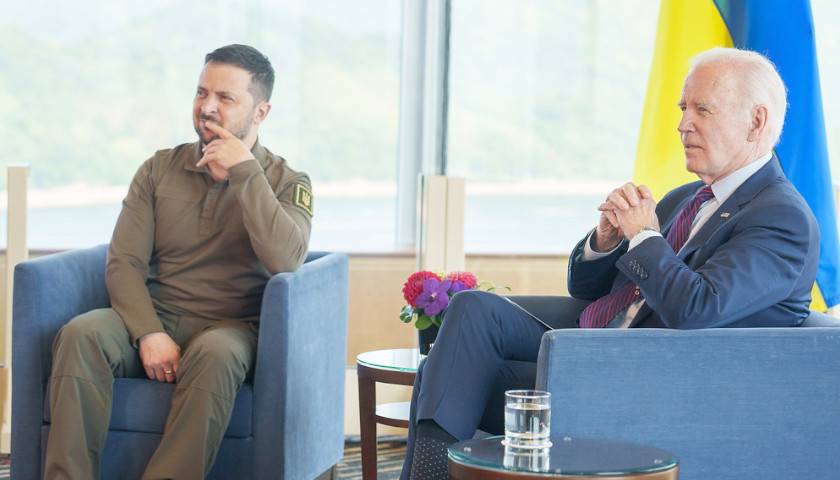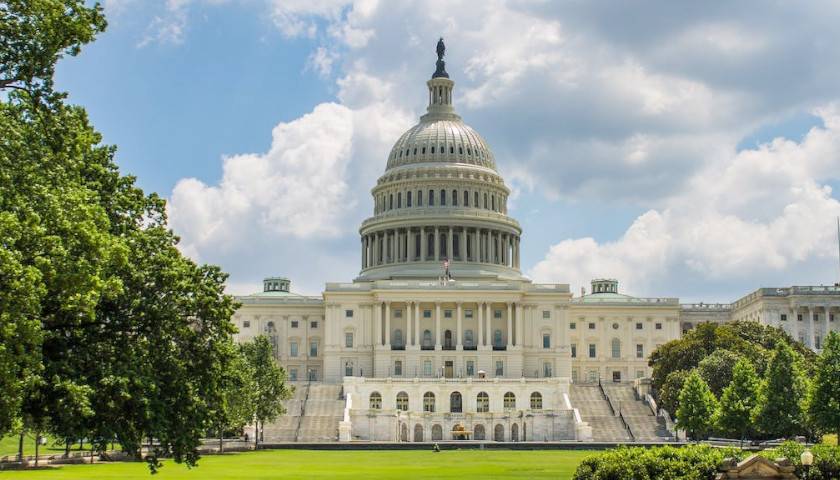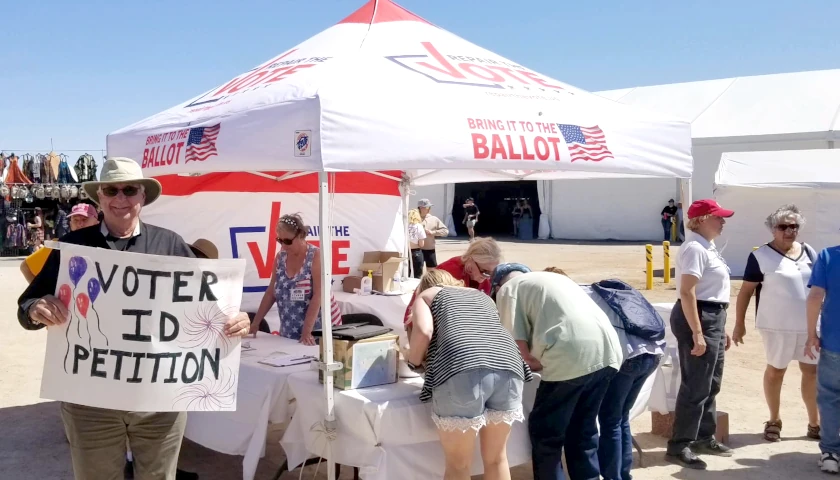by Jake Smith
As Russia’s war against Ukraine drags on, the U.S. and the NATO alliance are increasing their involvement in the conflict, presenting risks for a more direct confrontation with Moscow.
President Joe Biden reportedly gave Ukraine the green light in May to start firing U.S.-provided weapons directly into certain parts of Russian territory, as NATO members consider a similar policy and the possibility of sending trainers to train the Ukrainian military. The new initiatives would represent a shift in NATO’s policy of engagement in the war and could further escalate the proxy conflict with Russia.
The NATO Parliamentary Assembly convened on Monday and urged the alliance to remove a ban currently preventing Ukraine from firing Western weapons directly into Russian territory, echoing calls recently made by NATO Secretary General Jens Stoltenberg and top officials from Britain, Sweden, Latvia, Poland and Lithuania. Kyiv has long requested that it be allowed to fire Western-provided weapons into Russia, with officials bemoaning that the NATO ban has prevented them from effectively countering Russia’s advances.
 Secretary of State Antony Blinken Antony Blinken during a press conference on Wednesday did not signal any immediate policy change plans on how Ukraine is allowed to use U.S. weapons against Russia. But Biden has reportedly already given Kyiv permission to fire into Russian territory, according to the Financial Times, which Blinken failed to mention on Wednesday.
Secretary of State Antony Blinken Antony Blinken during a press conference on Wednesday did not signal any immediate policy change plans on how Ukraine is allowed to use U.S. weapons against Russia. But Biden has reportedly already given Kyiv permission to fire into Russian territory, according to the Financial Times, which Blinken failed to mention on Wednesday.
“The president recently directed his team to ensure that Ukraine is able to use U.S. weapons for counter-fire purposes in Kharkiv so Ukraine can hit back at Russian forces hitting them or preparing to hit them,” a U.S. official told Politico on Thursday, adding that the administration’s policy stance against long-range strikes inside Russia “has not changed.”
But Moscow has warned that if NATO allows Ukraine to fire their provided weapons into Russian territory, it will escalate the war and potentially drag alliance member nations further into the conflict. Russian President Vladimir Putin said Tuesday that such an action by NATO would represent another escalation that could “lead to serious consequences.”
“Providing Ukraine with the means and the permission to strike deep into Russian territory significantly increases the chances of a direct U.S.-Russian clash, which in turn could lead to the use of nuclear weapons,” George Beebe, former CIA analyst and director of grand strategy at the Quincy Institute, a non-interventionist foreign policy think tank, told the DCNF. Beebe noted that it was unlikely that Russia would utilize tactical nuclear weapons in the interim but instead potentially target American assets such as satellites, creating “a cycle of tit-for-tat retaliation with the United States that proves difficult to manage and contain.”
Even though Ukraine could benefit from using Western weapons to fire against Russia — as its own domestic weapons are not capable of effective, long-range strikes — the West’s hesitation on the matter may have created a “hype” that will invite a Russian retaliatory response, Jim Townsend, an ex-NATO and Pentagon official and senior fellow at the Center for New American Security, a foreign policy think tank led by former Democrat officials, told the DCNF.
“We have made this such a big deal that it will force the Russians to react one way or another. All of a sudden, it has become a red line drawn by the Russians, highlighted by the U.S. not wanting to escalate,” Townsend said. “And now, it has got such a high profile publicly that if we said, ‘Yeah, okay, go ahead [and fire into Russian territory],’ then you’re really putting the Russians in a corner to do something to top that, and who knows what that might be. So I think that certainly does run a risk of escalation, even more so than it did earlier in the war.”
Aside from weapons policy, members of the NATO alliance are also considering the idea of sending troops into Ukraine to help train Ukrainian forces. Ukraine suffers from a worsening manpower shortage and is rapidly recruiting and conscripting new men for the war effort; Kyiv has requested the U.S. and NATO to help train them.
A NATO-backed training presence in Ukraine, which would be the first of its kind since the war began, could bolster the country’s fighting abilities against Russia, whose own military does not suffer from the same manpower problems.
But if NATO-allied troops stationed in Ukraine are caught in the crossfire of an attack from Russia, it could prompt the entire alliance to take much more direct action in the conflict. Article Five of the NATO treaty stipulates that “an armed attack against one or more of them in Europe or North America shall be considered an attack against them all” and the alliance is then obligated to collectively take “action as it deems necessary,” including through armed force.
“Let’s say there are French trainers or German trainers in Ukraine, and they’re killed in a Russian missile strike,” Michael DiMino, a senior fellow at Defense Priorities and former CIA official, told the DCNF. “So now, what do we do? What happens after that? Do we go ahead and avenge those casualties and have the U.S. or France or Germany — again, all NATO members — engaged in some kind of limited strike on Russia? Is Russia not going to view that as an act of war and then not respond?”
If NATO troops are killed in a Russian attack and the alliance chooses not to pursue retaliation, it could come with the risk of undermining the alliance’s promise to defend itself.
“Even relatively small numbers of Western boots on the ground would create an enormous incentive for Russia to target them; failure to do so would only encourage the West to believe that Russia would tolerate greater and greater direct Western involvement over time,” Beebe told the DCNF.
Kyiv officials and Zelenskyy will attend a June peace summit in Sweden “to provide a forum where world leaders discuss paths towards a just and lasting peace in Ukraine; over 160 countries have been invited, including the U.S., although Biden has not signaled that he will be in attendance. Kyiv will also have a presence at the annual NATO summit in July, where, among other issues, existing and new initiatives to bolster Ukraine’s security will be discussed, potentially including sending troops to the region and lifting Western weapons use restrictions.
– – –
Jake Smith is a reporter at Daily Caller News Foundation.




